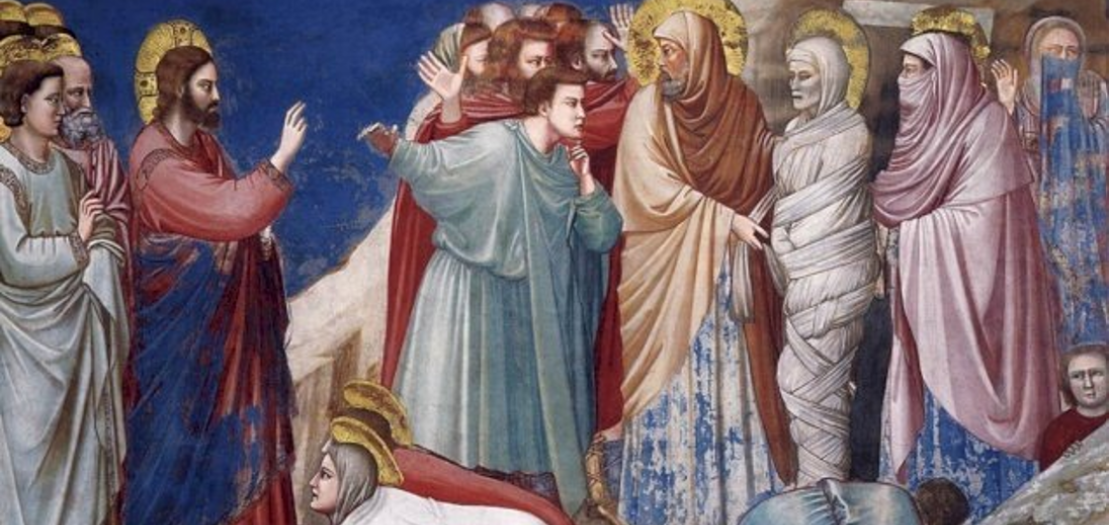Issued by the Catholic Center for Studies and Media - Jordan. Editor-in-chief Fr. Rif'at Bader - موقع أبونا abouna.org

Following is the text of the meditation by His Beatitude Cardinal Pierbattista Pizzaballa, Latin Patriarch of Jerusalem, for the 5th Sunday of Lent B, dated March 17, 2024:
Throughout John's Gospel, the theme of the 'Hour' of Jesus returns several times.
He is the one who says the hour has not yet come, (John 2:4; 7:30; 8:20) or that this hour is coming. (John 4:21,23; 5:25,28)
In today's passage, (John 12:20-33) for the first time, Jesus can say that his hour has come. (John 12:23)
First of all, one must ask what is the hour Jesus is talking about.
First of all, it is a time of crisis, of difficulty: Jesus states that, because of this hour, his soul is troubled, (John 12:27) and then immediately, he adds that this troubling will not cause him to escape from what is happening. Jesus wants to clarify from the outset what this hour is not: it is not the hour in which to save oneself, ("What should I say? Father, save me from this hour? But it was for this purpose that I came to this hour!" - John 12:27) for it is precisely to face this hour that He came into the world.
It is therefore, rather, the hour to address the Father with a prayer, ("Father, glorify your name" - John 12:28) and in this prayer Jesus asks what is essential, what is worth facing this hour for.
What Jesus asks of the Father is all in one verb, which returns no less than three times in this passage, all in verse 28, namely the verb "glorify."
Jesus asks the Father to reveal to everyone his profound truth, that which is contained in his name, in what he truly is: that is, he asks to reveal to everyone the mystery of his love, of his tenderness for every creature.
And in asking, he makes himself available to become an instrument of this revelation, to let his life, in this very hour, tell the glory of the Father, tell the truth of God. The hour, then, is the one in which Jesus reveals, by his free acceptance of death, the Father's love for every man.
The Father, in turn, answers this prayer.
He answers with the same verb used by Jesus, and he declines it in the past and future tense: "I have glorified him and I will glorify him." (John 12:28)
It means that in this dark and dramatic hour, the Father will not be absent. It is not a time when the Father withdraws and leaves the Son alone to face the drama of death.
The Father has been present in the Son's life, to the point that Jesus could say that he knows that the Father always hears him. (John 11:42) Well, this is not for Jesus a past experience that ends with his death but, on the contrary, a living certainty, the very thing that enables him to enter this hour, not to flee in the face of upheaval.
The Father's love will never fail, and it will accompany the Son in his hour, without abandoning him.
The Father's love embraces Jesus' life in his good and happy times, but it also embraces Jesus in His hour, in the hour of pain and toil; and it carries him beyond death, brings him back to life, brings him back to Him.
Jesus makes it clear that the Father’s Voice did not come for Himself, but for us. (John 12:30)
To say that this love concerns our past and our present, our joys and our sorrows, it embraces our whole life, just as it embraced Jesus'.
A further reflection concerns the occasion that enabled Jesus to say that the hour had come.
The occasion comes to him from the arrival of some Greeks (John 12:20) who had gone up to Jerusalem to celebrate the feast.
To the disciples, who act as ambassadors to their request, Jesus responds with the short parable of the grain of wheat. (John 12:24) The grain of wheat, if it does not die, remains alone. If Jesus does not die, he remains alone, without his friends, without those Greeks who have come to seek him, and throughout them without all those who, from far, seek His Face.
For whoever wants to see Him must look for Him within his own hour, within his own relationship of love and trust in the Father, within the certainty that this love accompanies him even into his death.
Our whole Lenten journey has no other purpose than to bring us here, to this hour, where Jesus reveals to us the face of God. There, lifted up from the earth, He bears much fruit: He draws all to Himself. (John 12:32)







